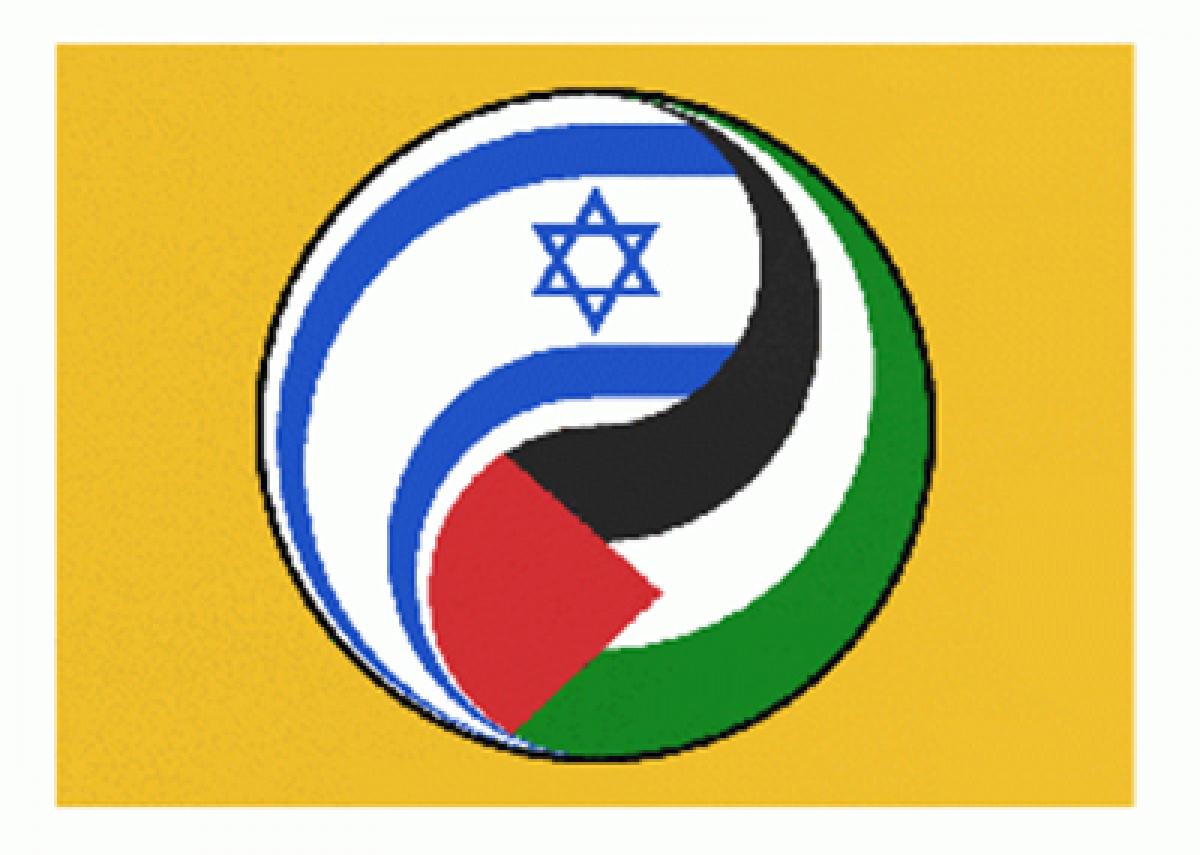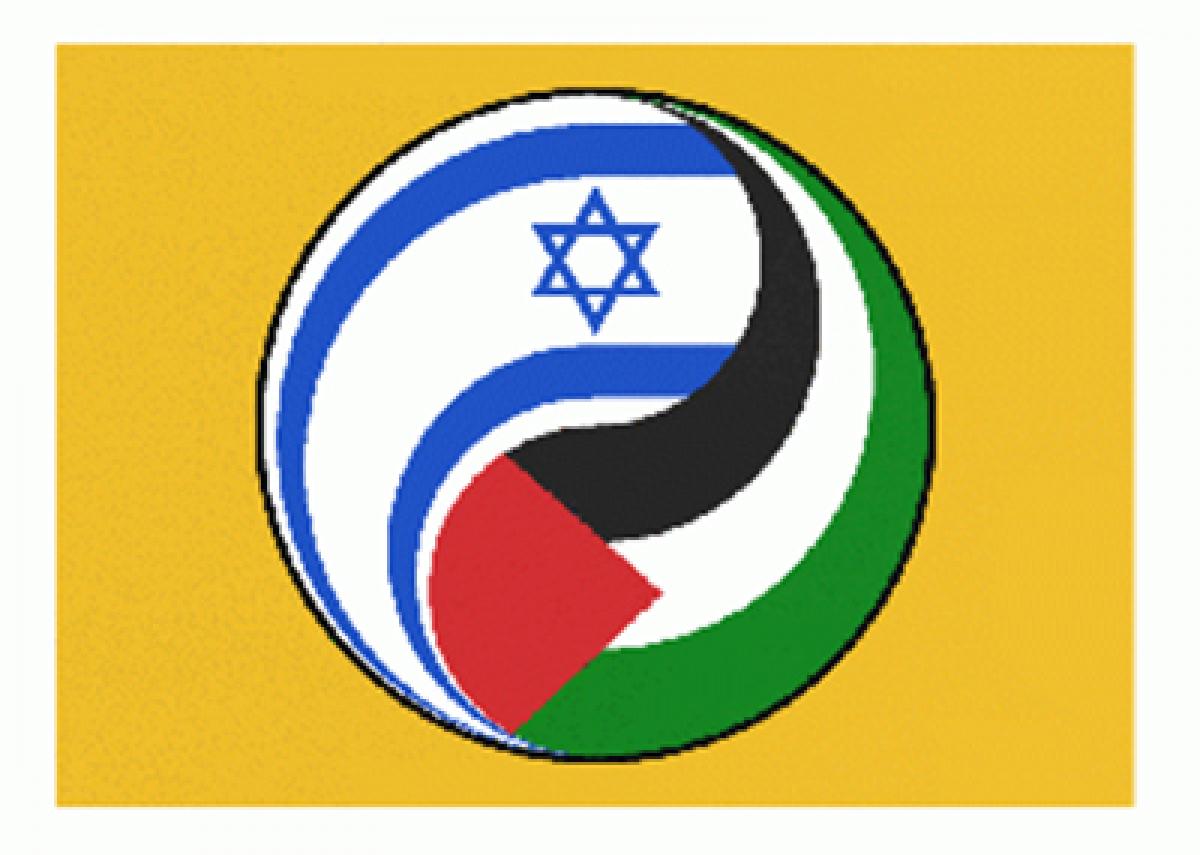Live
- Chanchalguda Jail Officials Say They Haven't Received Bail Papers Yet, Allu Arjun May Stay in Jail Tonight
- BJP leaders present evidence of illegal voters in Delhi, urge EC for swift action
- Exams will not be cancelled: BPSC chairman
- Nagesh Trophy: Karnataka, T.N win in Group A; Bihar, Rajasthan triumph in Group B
- YS Jagan condemns the arrest of Allu Arjun
- Economic and digital corridors to maritime connectivity, India and Italy building vision for future, says Italian Ambassador
- SMAT 2024: Patidar's heroics guide Madhya Pradesh to final after 13 years
- CCPA issues notices to 17 entities for violating direct selling rules
- Mamata expresses satisfaction over speedy conviction in minor girl rape-murder case
- Transparent Survey Process for Indiramma Housing Scheme Directed by District Collector
Just In

Overcoming The Israeli-Palestinian Psychosocial Barrier. Prime Minister Netanyahu’s and Palestinian Authority President Abbas’ presumed public commitment to a two-state solution means little unless they begin to undertake confidence-building measures to demonstrate their real intentions
 Prime Minister Netanyahu’s and Palestinian Authority President Abbas’ presumed public commitment to a two-state solution means little unless they begin to undertake confidence-building measures to demonstrate their real intentions. In fact, even if they really believe in what they state and negotiate to reach an agreement, they will fail just like in all previous peace negotiations unless they first prepare their respective publics psychologically by taking such measures. Failing that can only point to their sheer lack of commitment to peaceful coexistence, and no one should be fooled by their empty rhetoric because peace will not be reached without their publics’ support and engagement.
Prime Minister Netanyahu’s and Palestinian Authority President Abbas’ presumed public commitment to a two-state solution means little unless they begin to undertake confidence-building measures to demonstrate their real intentions. In fact, even if they really believe in what they state and negotiate to reach an agreement, they will fail just like in all previous peace negotiations unless they first prepare their respective publics psychologically by taking such measures. Failing that can only point to their sheer lack of commitment to peaceful coexistence, and no one should be fooled by their empty rhetoric because peace will not be reached without their publics’ support and engagement.
The current young generation of Israelis and Palestinians need to see each other through a different lens and adjust psychologically to accept that coexistence is irrevocable, and they must choose to either live in constant violent hostility, or in peace.
Currently, contact between the two sides is limited to what they deem necessary, including security cooperation and permits for Palestinians to work in Israel. These encounters do not allow for free social and human interaction to discuss their true concerns about one another, or share personal experiences that bring people together.
Anyone who is familiar with the daily lives of Israelis and Palestinians will tell you that stereotyping, mutual lack of trust, and animosity are most common. The Palestinians view the Israelis as cruel, uncaring, and bent on denying them a state of their own. The Israelis see the Palestinians as terrorists determined to wipe Israel off the map.
This is what the leadership on both sides have deliberately and habitually been propagating over the decades, which has become ingrained in the psyche of their respective publics. The failure of past negotiations only reinforced these sentiments, making it much harder to make the necessary concessions their publics could accept.
There are many measures both sides must take to mitigate the psychological impediments that have separated their publics for decades. If the leadership truly believes that they must first reach a peace accord before they encourage and institute such reconciliatory public measures, they are disingenuous and dangerously misguided.
The Israeli and the Palestinian governments and civil society can play a constructive role in shaping public opinion, including:
Modify text books to reflect more accurately the historic narrative, recognizing the existence and rights of each other. Both sides in particular ought to amend their curriculum to reflect the existence of the other. Indeed, as long as their historic and religious claims to the same land remain set in stone, little progress can be made.
Mutual tourism: Thousands of Israelis and Palestinians should be able to cross security checkpoints in both directions to enjoy a day or even a few hours at each other’s social settings—eat in restaurants, roam the marketplace, and experience firsthand how the other is living, as was the case before the first Intifada.
Joint sports activities: Israeli and Palestinian football, basketball, and other sports teams, such as the Israeli-Palestinian Peace Team, can meet alternately in Israel and Palestine to train, compete, and develop camaraderie. This should also include national and professional teams, which implies recognition of sovereignty.
In other areas of interaction, the governments can facilitate and fund, when needed, joint activities between the civil society and the private sectors on both sides, including:
Student interaction: Israeli and Palestinian students (primary schools up to universities) must be encouraged to mingle with their counterparts and talk about their aspirations and hopes for the future to be free and unburdened by uncertainty and perpetual conflict.
Art exhibitions: There are scores of Israeli and Palestinian artists who have never met or delved into each other’s mindset to see how their works reflect their lives. The governments should fund joint exhibitions both in Israel and Palestine and allow them to tour several cities and expose the young and old to see and feel what the other is trying to express through their art.
Public discourse: Universities, think tanks, and other learning institutions should encourage Israelis and Palestinians to participate in roundtable discussions and public lectures on the inevitability of coexistence to make it not only inevitable but desirable.
Joint forums to discuss conflicting issues should be established, consisting of qualified individuals with varied academic and personal experiences who enjoy respect in their field, are independent thinkers, hold no formal position in government, and have thorough knowledge of the conflicting issues.
Israeli and Palestinian media should regularly report on positive developments between the two sides, share with the public the changing political wind, and discuss how cooperation on trade, security, healthcare, and joint projects are benefitting ordinary citizens.
This should also include the production of movies, television shows, and plays (including comedy) to reflect how much they have in common and their mutual cultural influence in food, music, and interchangeable Arabic and Hebrew words and jargon.
Finally, female activism: Civil society should support current efforts by women-led groups such as Women in Black and Women Wage Peace to use their formidable power and make their voices heard. Historically, women have been very powerful as peacemakers; this has been demonstrated in a number of conflicts, including in Northern Ireland and the Balkans.
These activities and more must constitute the forerunner of any future peace negotiations. Indeed, even if at the present peace negotiations are not in the offing, given that coexistence is an irrefutable fact, Israeli and Palestinian governments and civil society must begin this process of reconciliation now to create the momentum for future successful negotiations.
None of this will occur without some hurdles, resistance, and even outright acts of sabotage, as there still is a significant constituency on both sides who simply do not accept each other’s right for statehood or even to exist, but they can be overcome through persistence in the implementation of these measures.
Nevertheless, if the Israeli and Palestinian leadership are truly committed to peaceful coexistence, this is the only way by which they can demonstrate their commitment and determination to end the conflict based on a two-state solution.
By Dr. Alon Ben-Meir
The author is a professor of international relations at the Center for Global Affairs at NYU. He teaches courses on international negotiation and Middle Eastern studies. He can be reached at [email protected]

© 2024 Hyderabad Media House Limited/The Hans India. All rights reserved. Powered by hocalwire.com







